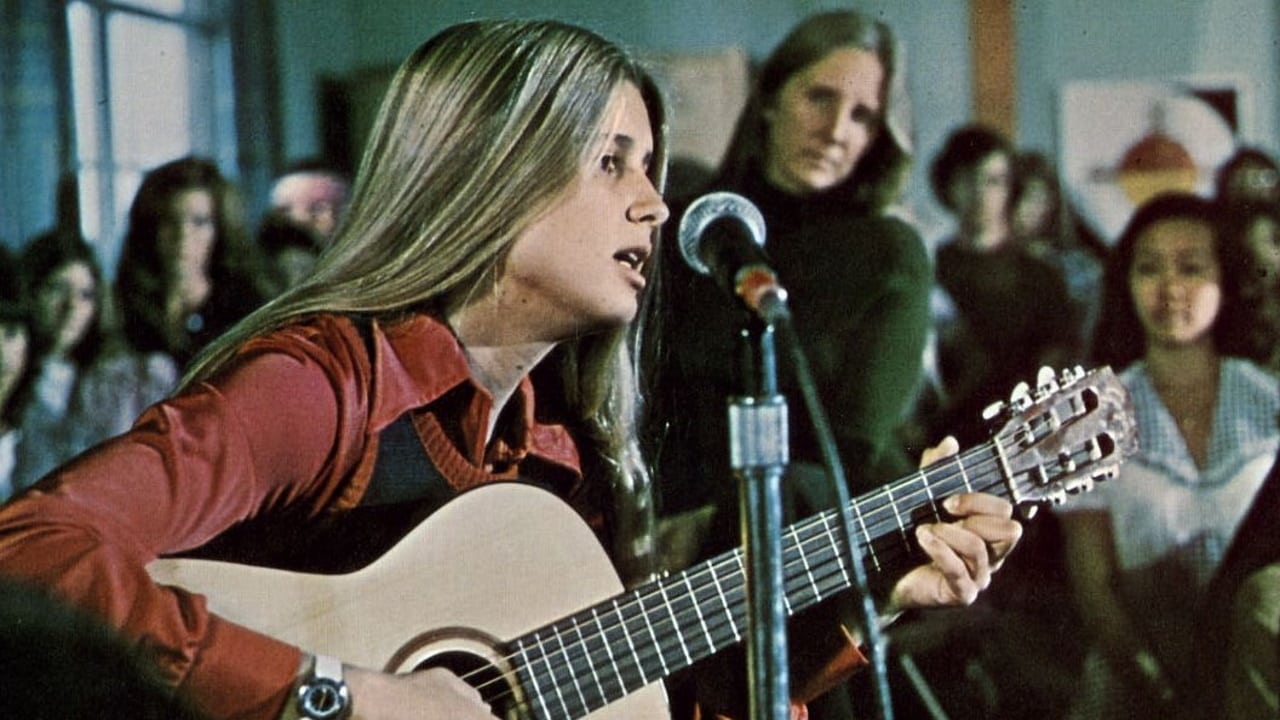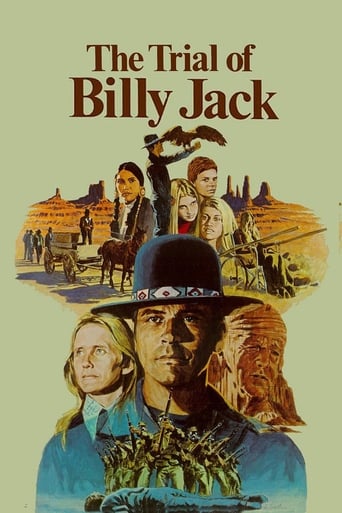

The original "Billy Jack" (1971) showed some promise and was so popular that it grossed nearly $33 million on a budget of only $800,000. Even though excessive violence was used to combat violence, folks eagerly awaited the sequel and lined up at theaters in 1974. The result was a major disappointment. "The Trial of Billy Jack" certainly began with hope, with its scenic vistas of Arizona's Monument Valley and the Elmer Bernstein score. But this overlong, three-hour flop takes an early exit and goes nowhere quickly. Virtually without plot, the movie jumps from one social issue to the next: cultural clashes, child abuse, crooked politicians, the establishment, hippies, the military, Vietnam, the police, etc. Jean Robert's sobs in her hospital bed, and begins to tell a long story to a young female reporter. So, almost everything that follows appears in flashback.The trial itself only occupies a short portion of this film. There were good reasons for Billy Jack's killing of Bernard Posner in "Billy Jack": after all the young man was a murderer and rapist. But the defense of Billy Jack (Tom Laughlin) seems inept; the lawyer does not ask about the circumstances. On the other side, the prosecution essentially asks Billy Jack about his philosophy of life. Then we get flashbacks about the Vietnamese War and accompanying atrocities. In the end, Billy Jack goes to prison for involuntary manslaughter and serves four years, so that Laughlin is off the screen for perhaps three-quarters of an hour. This screen time allows attention on Jean Roberts (Delores Taylor) and the progress of her Freedom School. Previously the students themselves renovated an old abandoned military academy in the desert. They worked hard and begged, borrowed, and scrounged for funds. They governed themselves by "love" (oh, oh). They learned and practiced about various topics, like meditation, body awareness, exercise, dance, band, music, arts/crafts, yoga athletics, math, and psychology. They discover an effective treatment for abused children (and even their abusers). When Jean hosts a child abuse conference, she reveals that the solution is love and patience. The hippies build a radio station and gain royalties by selling their recordings "door to door." They start a newspaper to expose right- wing corruption. Several long- haired geniuses even invent a lying machine! Yep, they can tell when a politician is lying, even on TV. The kids say that the FBI, CIA, and police are totally corrupt. When these young geniuses began to expose the top bigwigs of the country, the moguls begin to take notice. The masterminds claim that the Nixon White House and oil barons "manipulated" the entire 1973 energy crisis and engineered the Arab-Israeli War! Really? Esteemed journalists the world over missed this one. Actually the Arabs and Israelis detest each other and have been at odds for many decades, up to the present day! Anyway, the students seem to know so much that the barons apply pressure on the school. When they illegally tap the telephones, the kids outsmart them (again). Eventually the school's TV station gets wrecked. Damn Republicans! Given their dialogue, it is utterly impossible to believe that the kids are superlative masterminds, or even have learned very much. For they are as self-righteous and pompous as ever: with them there is no compromise. So when they attempt to work things out by themselves, they descend into chaos, and even scream at poor Jean! Meanwhile ignorant louts from town bully students, punch a girl, and burn the school bus. This becomes an excuse for a vengeful Billy Jack to take off his boots and socks before he lowers the hapkido boom. Oh, oh, someone is gonna get hurt! Billy Jack reprises his role when Blue Elk (Gus Greymountain) gets battered by rednecks for no obvious reason except that he's an Indian. Then he's inexplicably dragged amid a town dance, with the local judge in attendance. Folks could only stare; no one even tries to help. Billy Jack though takes over. Then another Posner (Riley Hill), also a jerk, dies trying to kill the hapkido master. The corrupt police also try to set up and kill Billy Jack, but he escapes. Meanwhile, the Indians continue to be gouged on the reservation and their lands shrink, assisted by their paid-off brothers. They too argue among themselves. Some starving Indians get ten days jail time for deer hunting out of season. A black woman who cannot keep up with furniture payments is dispossessed. A ski rescue (under clear skies!) is used to vilify a prejudiced doctor. There are so many plot points that come and go quickly. Fine editing would have helped immeasurably. Besides its extreme length and inept editing, the movie is weak in its pretentious dialog and political posturing. In addition, the hippies are amateur actors. They are also inferior guitarists and singers (Nice music department, Freedom School!). The pacing is torpid and several scenes take up too much screen time, like Billy Jack's spiritual vision to conquer his demons (while painted in red). Except for Teddy Kennedy (at Chappaquiddick) and the hippie rock thrower near the end, the left-wingers are good and do no wrong. The few good whites are those associated with the school, Sheriff Cole (Sparky Watt), and the founding fathers of Virginia, like Thomas Jefferson and James Monroe. The rest are bullies and racists. Republicans are wicked: Eisenhower, Nixon, and Ford are mentioned by name. In frustration, Jean eventually calls for a revolution on school TV. Did real life husband and wife Laughlin- Taylor really believe this stuff? The last part of the film imitates the 1970 strife at Kent State: National Guard vs. students. After that, Blue Elk says while holding a torch, "If this country must have another Civil War, then let it start here." Ugh!!! Then the surviving kids tell Jean that they are going to start their own schools everywhere. "With what?" one might add! Extremely disappointing!!
... View MoreI tried to sit through this movie when it was released in 1974. It was bad then, but it actually gets worse with time. So many "causes" and so many pure "untruths" that make this movie just a pathetic piece of liberal hogwash. I can't see how Tom and Delores can be any way proud of this work as time goes by. While watching, this reviewer want to get up and shake the actors and yell "wake up". It is obvious that the actors have had little if any training in their craft and most of the dialog is about as predictable as it gets. When Billy is released from prison and saves the day, the viewer has no doubt that another sequel is in the works. The Trial of Billy Jack is a perfect example of the idealism of many in the 1970's, and how naive many of us were at the time
... View MoreEverything the person who said made this movie "awful" makes it one of my favorites. If only people would have heeded some of the messages in this film years ago ... perhaps the USA would have progressed, and not regressed. Fascism continues to grip us by the throat, yet we do nothing, at best, or reward it, at worst. Time for a revolution. The hippies had it right all along. Bring 'em back!I love that this film is so "in your face." We need more like it. NOW. Actually there are a few documentaries that have come out in the last few years, but have not received the attention they deserve. I love the entire Billy Jack collection. It has been re-released in widescreen / 5.1 DVD. Only $40 for the box set. I highly recommend it.Come back Billy Jack, we need heroes like you. (Hopefully 2007 will see a new BJ film. See the Billy Jack web site. I bid you Peace, Love, and Understanding.
... View MoreI have spoken to a number of people who didn't like this film, some of whom also did not like BILLY JACK.The only conclusion I can come to is that those people all have one thing in common: they are the kind of people who can never accept correction, and hate having to hear others speak truths they would rather not face. They don't want to face the prospect of having to stretch their minds or reconsider their preconceived notions.This movie came at a time in my life when it was just what was needed. I was never afraid of hearing a sermon or accepting a lesson, as I believe we are all students in this life. I am not so perfect, so I'm not afraid to admit I don't know everything. That, in a way, is what happens in this film. The viewer is given an admittedly long, yet tasty, scenic, and fun sermon. Sometimes we need to be preached-to. I just watched this film the other day, and the political points it makes are as prescient today as they were in 1975. This is a movie that taught me, as an Indian myself, how to know myself, my deepest fears and motivations, how to face them with courage, and how to be a man. It was just what I, and many other young people, needed when it came out.Plus the fact that it is a wonderfully photographed film, that also pays great respect to the Native American community, something no other film had done at that time.Although it has it's flaws, TRIAL is still, to this day, my favorite film of all time.Like the spirits teach us, "Courage is not the absence of fear, but the conquest of it."
... View More